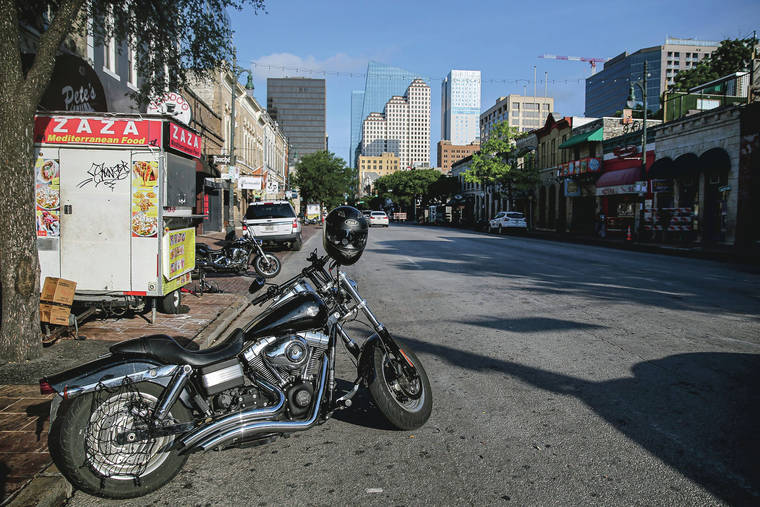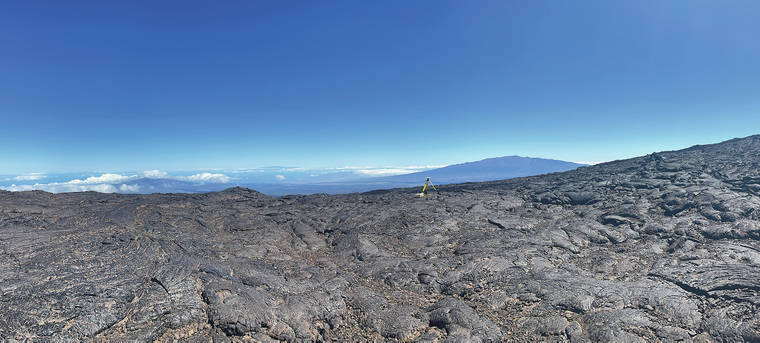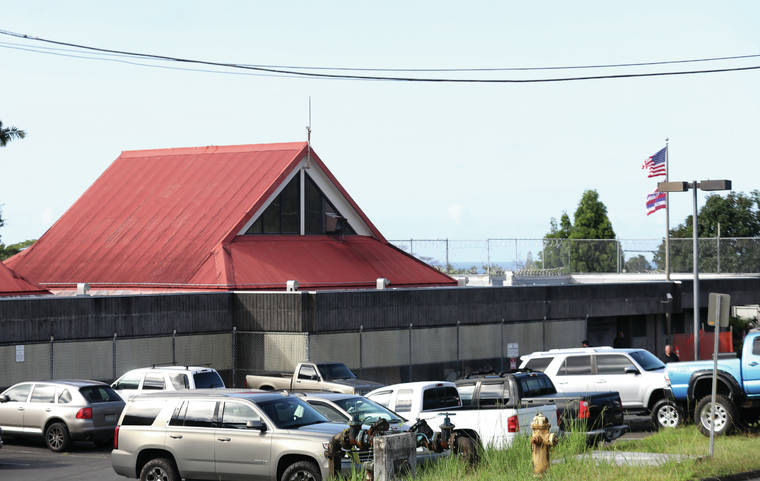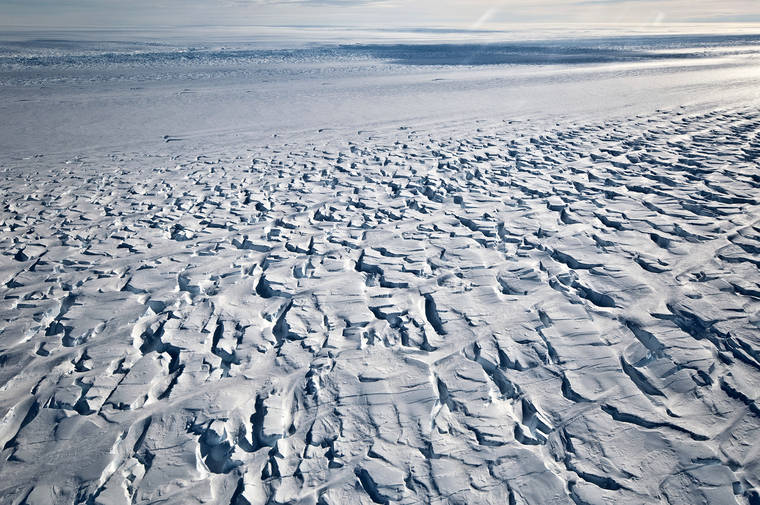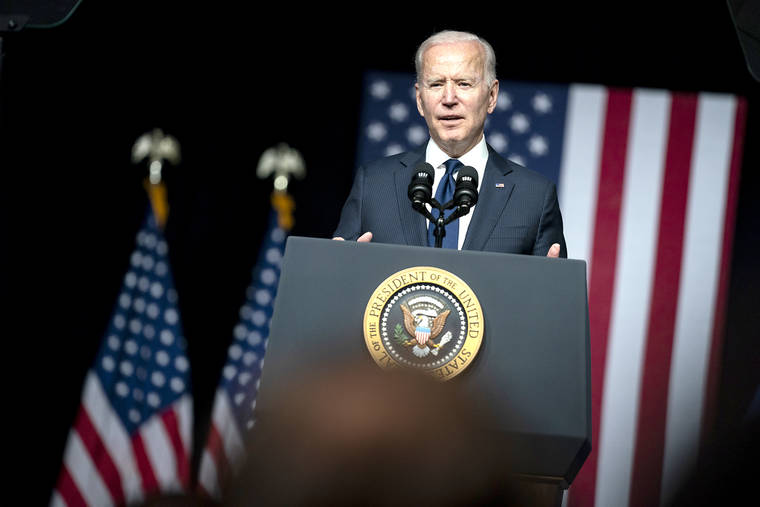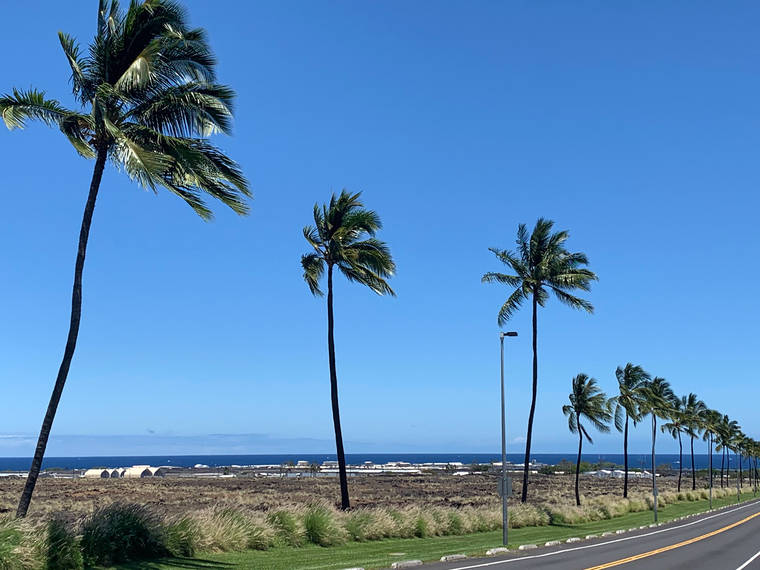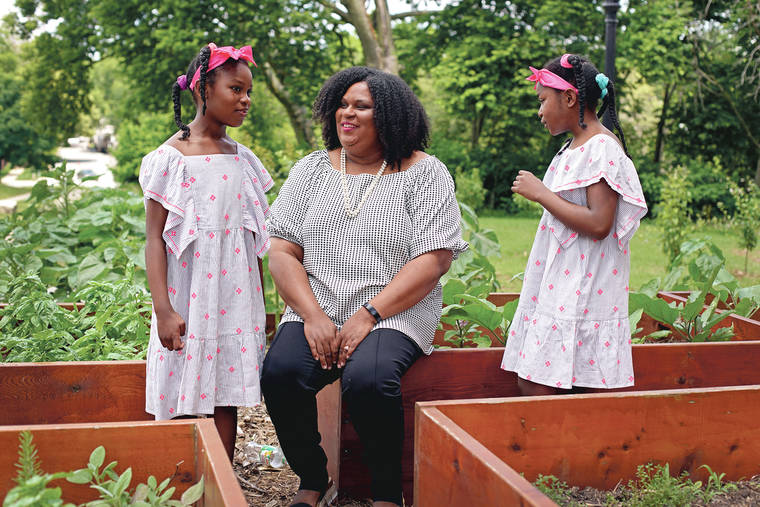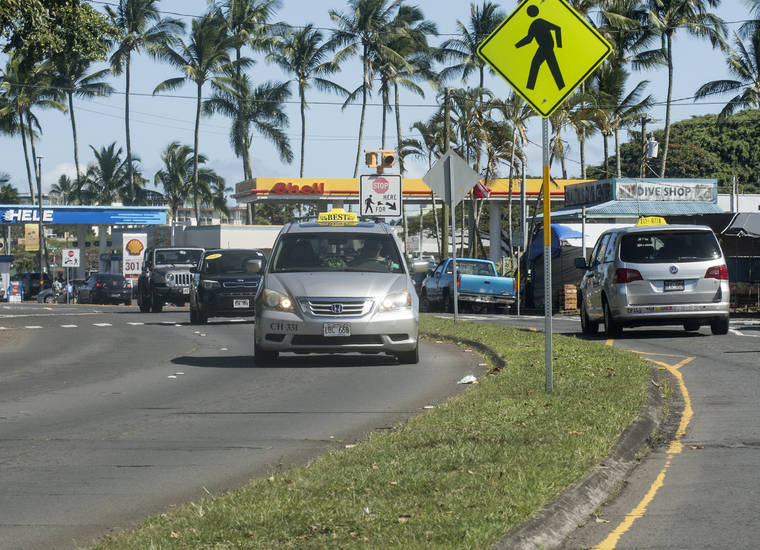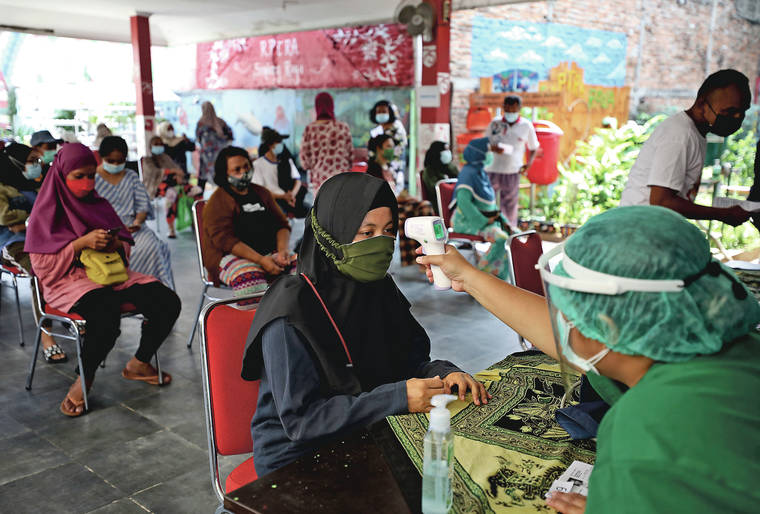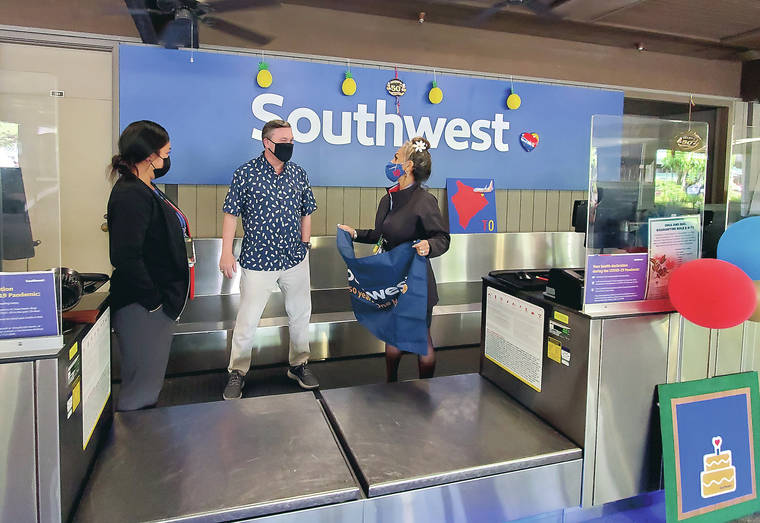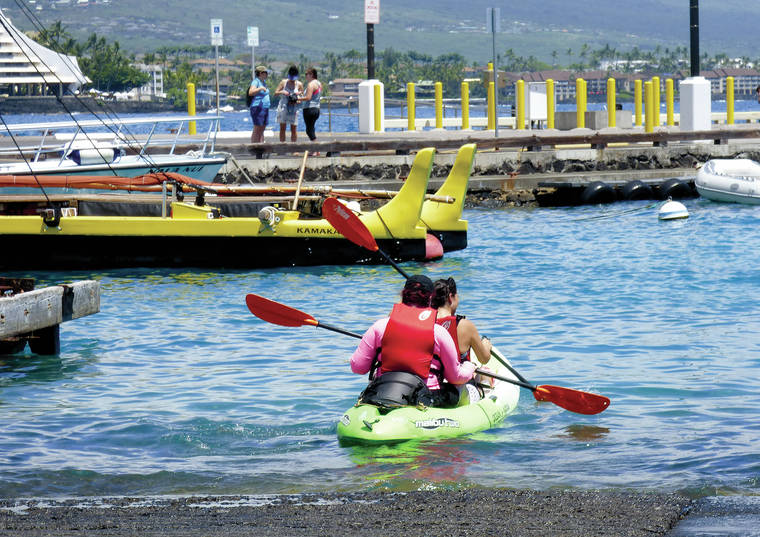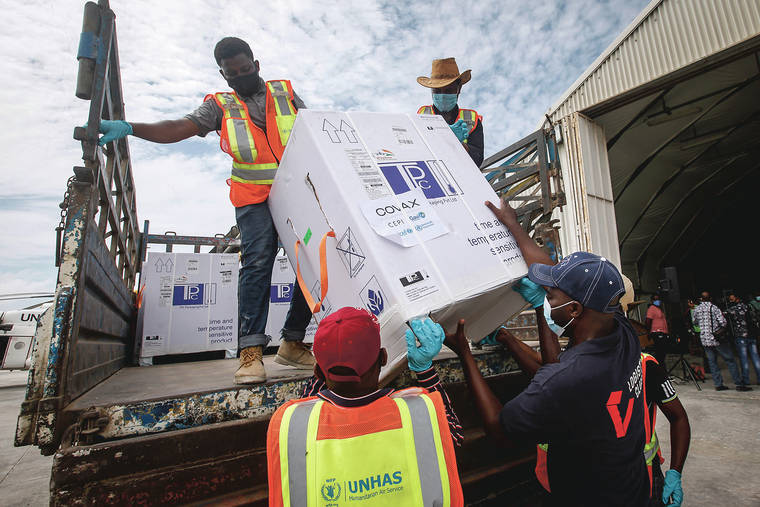Garland’s right: He’s not running an anti-Trump Justice Department
In recent days the U.S. Justice Department has taken positions that have disappointed Democrats and others because they defend legal arguments that the Trump administration espoused.
Aid groups appeal to G-7 for cash to get shots into arms
FALMOUTH, England — Rich nations must do more than just donate surplus vaccines if they hope to end the COVID-19 pandemic, according to public health experts and humanitarian groups that are calling for money, increased production and logistical support to help developing countries where the virus is still raging.
Police arrest 1 of 2 in Austin mass shooting that wounded 14
AUSTIN, Texas (AP) — Police have arrested one suspect and are searching for another after a mass shooting on a crowded downtown Austin street left 14 people wounded early Saturday, two of them critically.
Volcano Watch: Campaign season is here! Another way HVO tracks changes on Hawaiian volcanoes
Geodetic surveys measure the change in shape of our volcanoes due to changes in magma supply and storage. The USGS Hawaiian Volcano Observatory has a long history of using many different types of instruments and technologies over the decades to detect these changes.
More HCCC inmates test positive
Nearly 200 inmates at Hawaii Community Correctional Center have so far tested positive for COVID-19 in an ongoing outbreak that began last month.
In US, Pride Month festivities muted by political setbacks
It’s Pride Month, and gay Americans should have a lot to celebrate: A new president who has pledged to advocate for LGBTQ people, an easing of a pandemic that has disrupted their communal activism, and increasing public acceptance of their basic rights, including record-high support for same-sex marriage.
Justice Department will review restrictive GOP voting laws
WASHINGTON — The Justice Department will scrutinize a wave of new laws in Republican-controlled states that tighten voting rules, Attorney General Merrick Garland said Friday, vowing to take action on any violations of federal law.
Seized House records show just how far Trump admin would go
WASHINGTON — Former President Donald Trump has made no secret of his long list of political enemies. It just wasn’t clear until now how far he would go to try to punish them.
US vaccine surplus grows by the day as expiration dates loom
In Tennessee and North Carolina, demand for the COVID-19 vaccine has slowed down so much that they have given millions of doses back to the federal government, even though less than half of their total populations are vaccinated.
State briefs for June 12
Honolulu loosens virus restrictions as vaccinations rise
Ice shelf protecting Antarctic glacier is breaking up faster
A critical Antarctic glacier is looking more vulnerable as satellite images show the ice shelf that blocks it from collapsing into the sea is breaking up much faster than before and spawning huge icebergs, a new study says.
Pulitzers honor coronavirus pandemic, US protest coverage
The Associated Press won two Pulitzer Prizes in photography Friday for its coverage of the racial injustice protests and the coronavirus’s terrible toll on the elderly, while The New York Times received the public service award for its detailed, data-filled reporting on the pandemic.
The world’s food supply has never been more vulnerable
After a cyberattack crippled the world’s largest meat producer last week, JBS SA meat plants have begun to reopen across the globe. But the meat industry shouldn’t be returning to business as usual — and for the security of our food supply, the Biden administration needs to make sure that it doesn’t.
Opioid peddlers don’t deserve a free pass
Those responsible for the scourge of opioid addiction that has torn through communities in Washington and across the nation must be held accountable.
NOT REAL NEWS: A look at what didn’t happen this week
A roundup of some of the most popular but completely untrue stories and visuals of the week. None of these are legit, even though they were shared widely on social media. The Associated Press checked them out. Here are the facts:
Tropical Gardening: What would Hawaii be without coconut palms?
When the first Polynesians arrived in these Islands, there were very few plants available as a food supply. Fortunately, they brought a great variety with them that we refer to as canoe plants. These included, banana, sugar cane, breadfruit, mountain apple taro, coconut and scores of others. They also brought pigs, jungle fowl and rats that changed our forests forever. At first, Hawaiians had to survive on food from the sea, seabirds, flightless birds like the Nene and others that soon became extinct. Once they established their gardens, life likely became much easier.
Food allergies complicate hungry Americans’ search for meals
SACRAMENTO, California — When Emily Brown, a Kansas City mother, couldn’t find foods that her 2-year-old with multiple food allergies could eat at a local food pantry, she mustered up the courage to ask about gluten-free foods or dairy alternatives.
Taxi companies lose certificates: Pandemic thins cab ranks even as demand grows
“Bradley Hollister, dba Paradise Taxi!” “Luana Limousine, dba Laura’s Taxi!” “Shaka Taxi!” “Kelly Does Kona LLC, dba World’s Coolest Cab!”
G-7 nations gather to pledge 1B vaccine doses for world
CARBIS BAY, England — World leaders from the Group of Seven industrialized nations are set to commit at their summit to share at least 1 billion coronavirus shots with struggling countries around the world — half the doses coming from the U.S. and 100 million from the U.K.
President of Southwest talks expansion during Hilo stop
It was quiet and drizzly Thursday morning as Southwest Airlines President Tom Nealon made his way to the carrier’s counter at Hilo International Airport, warmly greeting the customer service agents behind the desk.
State briefs for June 11
Union: No charges support action in shooting
US deaths from heart disease and diabetes climbed amid COVID
NEW YORK — The U.S. saw remarkable increases in the death rates for heart disease, diabetes and some other common killers in 2020, and experts believe a big reason may be that many people with dangerous symptoms made the lethal mistake of staying away from the hospital for fear of catching the coronavirus.
Hawaii tourism officials call for more sustainable industry
HONOLULU (AP) — As people flock back to Hawaii after more than a year of pandemic travel restrictions, some industry experts are calling for more environmentally responsible and sustainable forms of tourism.
Medicare copays for new Alzheimer’s drug could reach $11,500
WASHINGTON — A new $56,000-a-year Alzheimer’s drug would raise Medicare premiums broadly, and some patients who are prescribed the medication could face copayments of about $11,500 annually, according to a research report published Thursday.
Celebrations (and questions) greet US vaccine donation plan
CAPE TOWN, South Africa — U.S. plans to donate 500 million more COVID-19 vaccines to developing countries were met Thursday with both celebration and hesitation amid questions over whether the effort will be enough to help poor regions desperate for doses.

